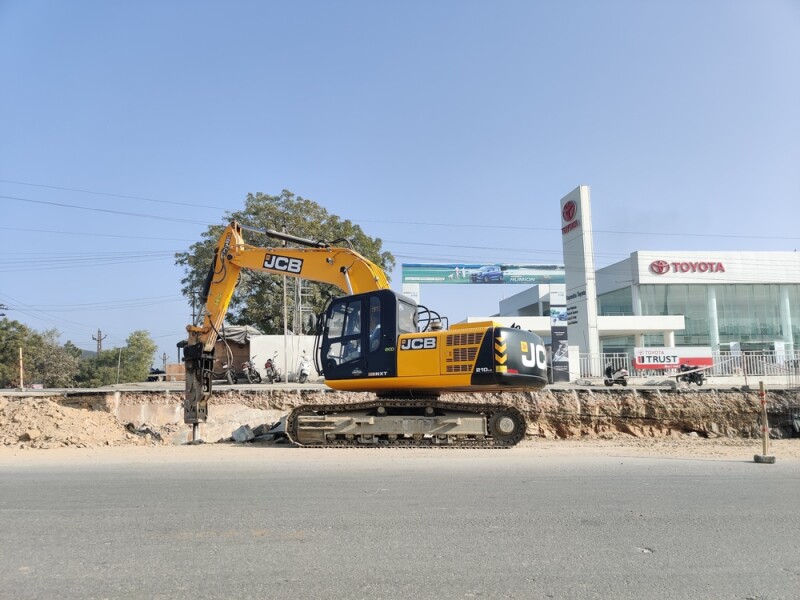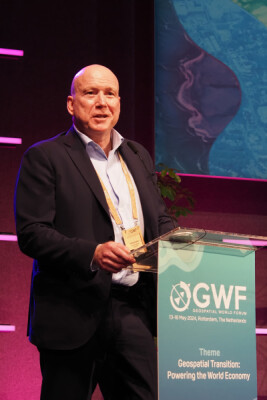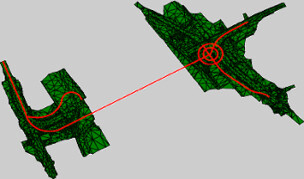Arlington, VA | August 8, 2024 - The Open Geospatial Consortium (OGC) is excited to announce that the OGC Membership has approved version 1.0 of the OGC Model for Underground Data Definition and Integration (MUDDI) Part 1: Conceptual Model for adoption as an official OGC Standard. MUDDI serves as a framework to make datasets that utilize different information for underground objects interoperable, exchangeable, and more easily manageable.
MUDDI represents real-world objects found underground. It was designed as a common basis to create implementations that make different types of subsurface data – such as those relating to utilities, transport infrastructure, soils, ground water, or environmental parameters – interoperable in support of a variety of use cases and in different jurisdictions and user communities. The case for better subsurface data and an explanation of the usefulness of the MUDDI data model is made in this MUDDI For Everyone Guide.
Certainly, a key focus application domain, and one of the main motivations for creating MUDDI, is utilities and the protection of utilities infrastructure. Indeed, OGC’s MUDDI Model was successfully used in pilot testing for the National Underground Asset Register (NUAR), a program led by the UK Government’s Geospatial Commission. More information on NUAR can be found here.
MUDDI aims to be comprehensive and provides sufficient level of detail to address many different application use cases, such as:
- Routine street excavations;
- Emergency response;
- Utility maintenance programs;
- Large scale construction projects;
- Disaster planning;
- Disaster response;
- Environmental interactions with infrastructure;
- Climate Change mitigation; or
- Smart Cities programs.
The MUDDI Conceptual Model provides the implementation community with the flexibility to tailor the implementations to specific requirements in a local, regional, or national context. The standardization targets are specific MUDDI implementations in one or more encodings such as GML (Geographic Markup Language), SFS (Simple Features SQL), Geopackage or JSON-FG encodings that are expected to be standards in future parts of the MUDDI standards family. Both GML and JSON-FG are supported by the OGC API – Features Standard. SFS is supported by a number of database systems.
MUDDI consists of a core of mandatory classes describing built infrastructure networks (such as utility networks) together with a number of optional feature classes, properties, and relationships related to the natural and built underground environment. The creation of implementations targeted to defined use cases and user communities also allows the extension of the concepts provided in MUDDI.
The early work for crafting this OGC Standard was undertaken in the OGC Underground Infrastructure Concept Study, sponsored by Ordnance Survey, Singapore Land Authority, and The Fund for the City of New York – Center for Geospatial Innovation.
The Concept Study was followed by the Underground Infrastructure Pilot and MUDDI ETL-Plugfest workshop, as well as close collaboration with early implementers of MUDDI, such as the UK Geospatial Commission. Several implementations of MUDDI were thoroughly tested in the OGC Open Standards Code Sprint in October/November 2023. The results are described in the OGC 2023 Open Standards Code Sprint Summary Engineering Report and a blog post entitled Going underground: developing and testing an international standard for subsurface data, which describes the experiences and lessons learned from the Geospatial Commission’s attendance at the Code Sprint.
Version 1.0 of the MUDDI Conceptual Model Standard is the outcome of those initiatives, as well as the work and dedication of the MUDDI Standards Working Group, which led the development of the Standard, including:
- Editors:
- Alan Leidner, New York City Geospatial Information System and Mapping Organization (GISMO)
- Carsten Roensdorf, Ordnance Survey
- Neil Brammall, Geospatial Commission, UK Government
- Liesbeth Rombouts, Athumi
- Joshua Lieberman
- Andrew Hughes, British Geological Survey, United Kingdom Research and Innovation
- Contributors:
- Dean Hintz, Safe Software
- Allan Jamieson, Ordnance Survey
- Chris Popplestone, Ordnance Survey
OGC Members interested in staying up to date on the progress of this Standard, or contributing to its development, are encouraged to join the MUDDI Standards Working Group via the OGC Portal. Non-OGC members who would like to know more about participating in this SWG are encouraged to contact the OGC Standards Program.
As with any OGC standard, the open MUDDI Part 1: Conceptual Model Standard is free to download and implement. Interested parties can view and download the standard from OGC’s Model for Underground Data Definition and Integration (MUDDI) Standard Page.
About OGC
The Open Geospatial Consortium (OGC) is a membership organization dedicated to using the power of geography and technology to solve problems faced by people and the planet. OGC unlocks value and opportunity for its members through Standards, Innovation, and Policy & Advocacy. Our membership represents a diverse and active global community drawn from government, industry, academia, international development agencies, research & scientific organizations, civil society, and advocates.
Source: OGC







